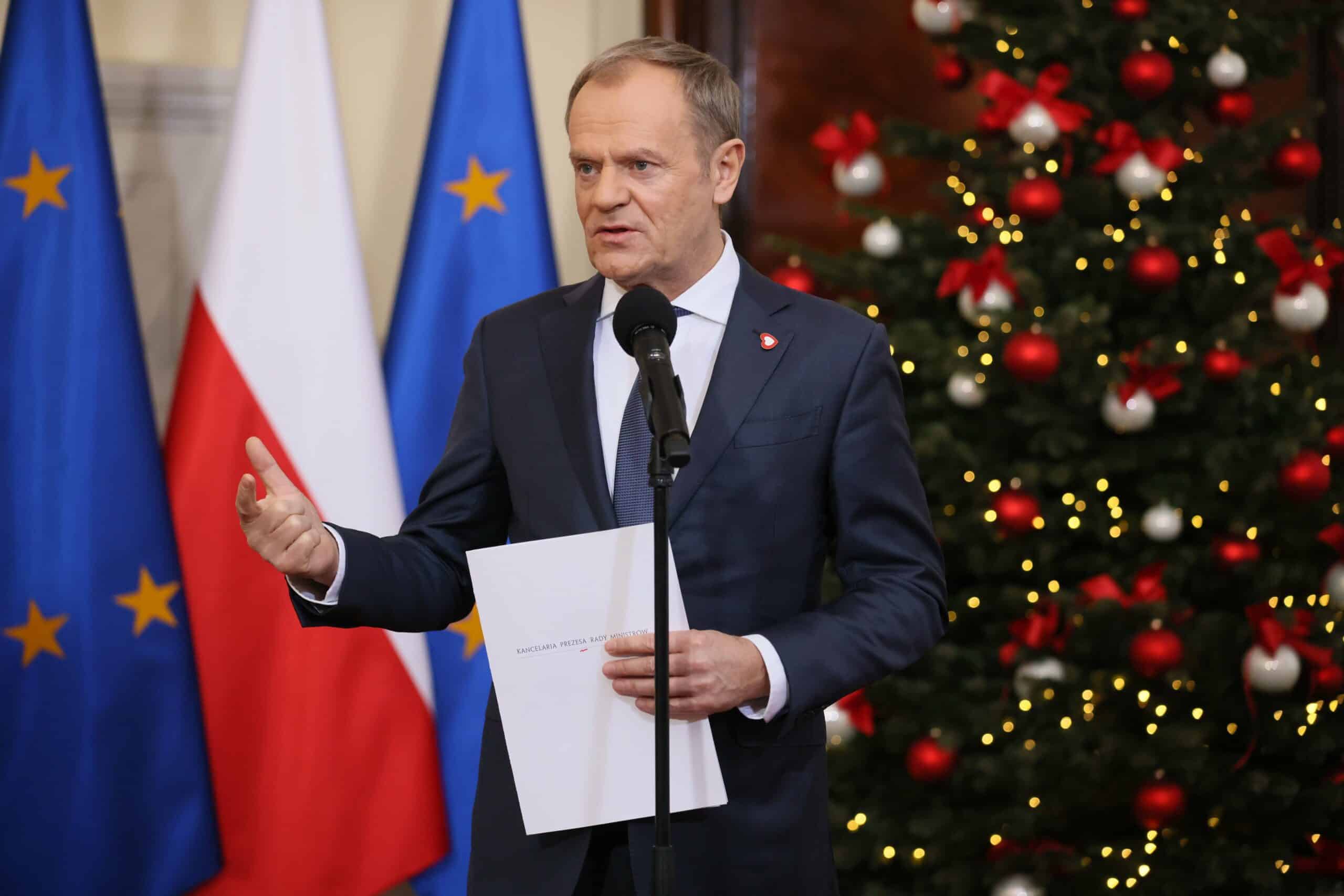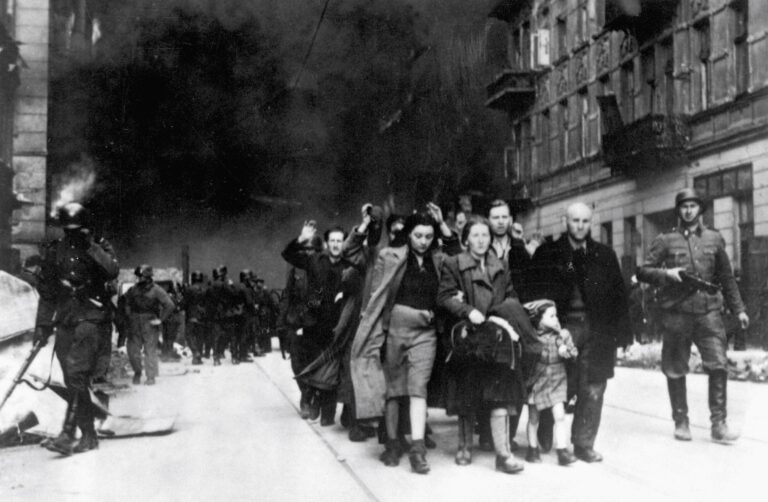Polish cohabitation faces early tests
President Andrzej Duda, an ally of outgoing ruling party – Law and Justice (PiS) – delayed the formation of a new government under Donald Tusk for as long as he could, but the lower house of parliament – Sejm – on December 12 finally elected Tusk prime minister. And the Tusk government has wasted little time since.
In one of its first acts after taking office it passed a government draft resolution through the Sejm “on eliminating the effects of the constitutional crisis in the context of the political position and functions of the National Council of the Judiciary (KRS) in a democratic state ruled by law.”
The project – submitted by a group of MPs from the now ruling coalition of Civic Coalition (KO), PSL-TD, Polski 2050-TD and the Left – notes that three resolutions of the Sejm from 2018, 2021 and 2022 on the election of judges-members of the KRS were “in gross violation of the constitution” and called on members of the KRS to resign.
Meanwhile, in an act of political symbolism, on his first day in office, Justice Minister Adam Bodnar – Poland’s former human rights ombudsman – signed a motion for Poland to join the European public prosecutor’s office. Bodnar cancelled the appointment of six regional court “presidents,” appointed by the outgoing minister just before leaving office and widely seen to be political appointees.
The European Court of Human Rights and the Court of Justice of the European Union have ruled that Poland’s KRS does not meet the requirements of independence from the executive and legislative power and thus that any judge appointed with the participation of the new KRS cannot be considered independent and impartial.
The Commission has blocked 35 million euros in funding for Poland due to democratic backsliding. Katarzyna Pełczyńska-Nałęcz, Minister of Funds, said on December 28 that EUR 5 billion has been transferred to Poland from the RePowerEU program, part of the KPO. But over 30 bln euros is still awaited.
Backlash?
Duda said he would never agree “to questioning the status of judges appointed by the President of the Republic of Poland … appointing judges is the prerogative of the President of the Republic of Poland, before whom judges take an oath, and as a result, judges are irremovable.”
Meanwhile, on December 27, PiS leader Jaroslaw Kaczyński announced on Telewizja Republika that a large demonstration of opponents of how “the law is being broken” in the public media will soon take place: the “conference of patriotic forces” in Warsaw on January 11. “Poles have faced the most difficult challenge since 1989. I am deeply convinced that they will meet this challenge, although it will not be easy and it will probably not be short either. We have to fight!”
In 1989, Poland emerged after over 40 years of often brutal communist rule, holding semi-free elections that ushered in a Solidarity-led government and the dismantling of the old system in the early 1990s. From 2015 until elections in October, Poland was ruled by PiS, which was widely seen to break democratic norms and undermine the democratic institutions built up after 1989. Kaczynski has talked of 1989 as a failed revolution which created the form of Polish democracy he sought to unravel from 2015 onwards.
Media uproar
On December 19, the Minister of Culture and National Heritage, Bartłomiej Sienkiewicz, dismissed the authorities of the Public Television, Polish Radio, and Polish Press Agency and appointed new supervisory boards.
In apparent revenge, on December 23, Duda vetoed the budget-related act, according to which public media would be co-financed from the state budget, this time a total amount of 3 billion zlotys. Duda justified the veto with “gross violation of the Polish Constitution” by the Minister of Culture.
Consequently, with the blocking of financing, on December 27, Sienkiewicz announced he had put public media into liquidation, citing cited the Commercial Companies Code. He was making these decisions as the body exercising the State Treasury’s ownership rights, as he owns 100% of the shares in the companies – he conducted a one-person general shareholders’ meeting. Sienkiewicz changed the supervisory boards, which then replaced the management of the companies. thus bypassing the National Media Council, established during PiS’s two terms in government, which until now appointed the management of these media.
Budget
Meanwhile, the new government adopted an amended draft budget for 2024, which assumes an 11% higher deficit than planned by the PiS administration. Expenditures will be 866 billion zlotys compared to 849.3 billion zlotys planned by PiS. Revenues will amount to 682 billion zlotys, compared to 684.5 billion zlotys, leaving a budget deficit of 184 billion zlotys against 164.8 billion zlotys planned by PiS.
ING notes that the proposal forwarded by the Tusk administration delivers much less than pledged during the election campaign. The new spending in 2024 is linked to the 30% wage hike for teachers and 20% higher wages for public administration. As a result, the proposed 2024 state budget deficit is nearly 20 bln zlotys (0.5% of GDP) higher than initially proposed, ING says.
Domanski noted that Poland’s borrowing needs will reach 250 billion zlotys, while the general government deficit, the measure used by the European Union, which includes local government spending, will be at 5.1% of GDP.
Higher borrowing needs will be financed by debt issuance, he said.
He also noted that the draft budget takes into account the previously assumed payment of the central bank profit for 2023 of 6 billion zlotys, although according to media reports, the NBP may record a loss of 20 billion zloty for 2023.
The new government plans to maintain key PiS programs, its flagship child-benefit scheme and pay raises of 30% for teachers and 20% for other government employees. The budget also earmarks 500 million zlotys for the newly restored IVF program and 10 million zloty for initiatives such as a helpline for children and youth. Funding for both had been withdrawn under PiS.
Funds have also been secured for a planned program offering women who decide to return to work early from maternity leave a monthly payment of 1,500 zlotys.
The government has frozen energy prices for households for the first half of the year, not all of 2024, as PiS wanted, and Domanski said credit holidays in 2024 will not be maintained for all loan repayers.
“The pressure on the new government on socio-economic issues will come from the fact that, to win the election, it had to make a series of extremely costly spending pledges,” says Aleks Szczerbiak of Sussex University.
“[But], the government is not implementing its costliest pledge to radically increase the annual tax-fee income threshold to 60,000 złoty, which Civic Platform had also promised to implement within its first 100 days in office but now argues that it is too late in the tax year to introduce such a change,” says Aleks Szczerbiak of Sussex University.
“Poland’s ideologically diverse new government is prioritizing ‘settling accounts’ with its right-wing predecessor and elite replacement. But Poles may quickly tire of this if they view it as ‘revenge politics’ and looking for get-arounds to avoid possible presidential vetoes and constitutional tribunal referrals leaves the new administration open to accusations that they are themselves violating the ‘rule of law,’” says Szczerbiak.







